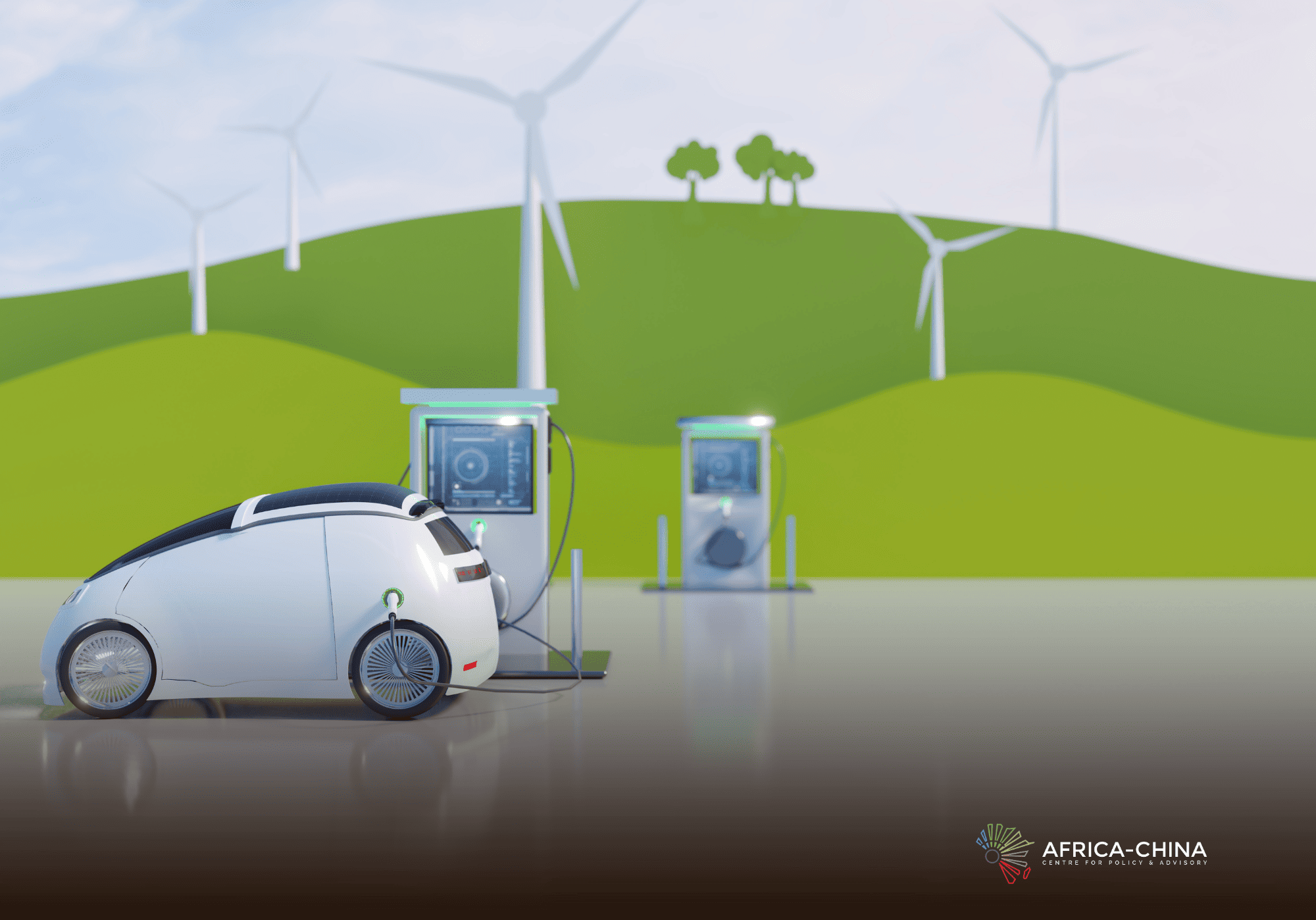
Amidst efforts to adopt sustainable environmental practices, sustainable transportation is a prioritised area of consideration. The quest for sustainable transportation makes electric vehicles (EVs) an appealing alternative to internal combustion engine (ICE) cars, resulting in a growing global EV market.
In Africa, Ghana ranks high, being one of the countries with the highest EV adoption rates, dominated by Chinese brands and auto parts.
The traction Chinese EVs are gaining in Ghana can be partly attributed to the relatively cheaper costs of their vehicles and the partnerships Chinese EV firms have forged with leading local companies, such as SolarTaxi and Kofa.
SolarTaxi, through this partnership, imports and assembles electric two- and three-wheelers, buses, and compact cars. Kofa, in partnership with Chinese EV manufacturers, TAILG Group, supplies the Jidi motorcycle to the Ghanaian market.
Additionally, some Chinese EVs support battery swapping systems, such as those provided by Kofa, giving these Chinese EVs a significant advantage in the Ghanaian market, where charging infrastructure is a formidable setback. Other companies are joining the race, and the EV space is gaining competitive momentum.
Despite the hope-filled future of EV adoption in Ghana, significant challenges are beleaguering the progress that can be made and even the sustainability of the EV companies racing in droves for a share of the Ghanaian market in the face of these setbacks.
While environmental concerns back the push for EV adoption, it is hardly a priority for the average Ghanaian buyer. Recent research reveals that the most critical considerations for Ghanaians when deciding to buy an EV are the availability of charging infrastructure and servicing shops. If these are the pressing concerns of Ghanaians, then the progress in EV adoption is significantly tied to the extent to which these desirables are met.
The state of public EV charging and servicing stations in Ghana
Despite the government’s plan to establish 1,000 charging stations by 2028, a 2024 UNDP report revealed that Ghana had a meager total of seven public charging stations, all located in Accra.
Recently, Charge Express has established a charging station with four outlets, also in Accra. The positioning of these charging stations is not properly distributed within the region to put them within an easily accessible range for users scattered in Accra’s localities. The main charging source for most EV users has been home-installed chargers.
Consequently, the present state of public charging stations limits the convenience of intra-Accra commuting while making travel beyond Accra virtually impractical. The current EV user in Ghana can at best commute within Accra.
The majority of EVs bought are motorcycles, which are mostly used for delivery services – a service that will require riders to have easy access to public charging or battery swap stations for efficiency and profitability.
The advocacy for public charging stations is not necessarily because these charging stations are a better alternative to home-installed chargers. In fact, cost analyses in some developed economies show that home-installed chargers are more economical, being cheaper per kWh and per mile than using public charging stations.
That said, public charging remains essential for commercial vehicles, long trips, or for EV owners without access to home charging. Additionally, the high cost of electricity for domestic and commercial households in developing countries such as Ghana could make public charging stations a relatively affordable option due to economies of scale. Especially when provided by blended financing schemes, including public, concessionaire, and public-private partnerships.
The country also struggles with intermittent electricity supply, particularly outside major cities. While solar-based systems are promising, their scalability remains uncertain without policy support and long-term investment.
The servicing market lags further as EV servicing and maintenance are currently primarily provided by EV dealers to customers who purchase their vehicles. Accordingly, for current EV users, servicing and maintenance might be costly and inconvenient if only a few servicing shops have technicians skilled enough to handle some specialized repairs.
Potential users are also likely to be deterred by such inconvenience, with legitimate concerns such as “what if the car breaks down in the middle of the road?
Despite other concerns, such as pricing, the pace of EV adoption is likely to be significantly bolstered by addressing the public charging and service station deficits.
The way forward
It would be imperative for EV firms to recognize the significant hurdles that charging and servicing pose to their market capture and growth in Ghana. Despite the government’s plan to establish charging stations nationwide, the private sector may be a better front to champion the dissemination of such charging stations.
The more Ghanaians encounter public charging and service stations in their daily commutes, the more likely they are to embrace EVs as an alternative to ICE vehicles.
Establishing modern public charging stations is cost-intensive, with potentially lengthy payback periods, considering that Ghana is still in the early stages of EV adoption.
The challenge, however, presents an opportunity for private non-EV dealers to complement what EV manufacturers are providing to the Ghanaian market.
Looking beyond the technicians that EV manufacturers are equipping for their services, attention should be given to expanding the domestic base of technical knowledge in the country to support the nationwide expansion of service stations.
Perhaps, it is a ripe time for technical and vocational institutes to partner with EV manufacturers in enrolling technical and professional training, particularly in EV servicing and maintenance. Such training may equip technicians to establish independent EV servicing centres to help alleviate the existing servicing anxiety among EV users and potential users.
https://africachinacentre.org/greening-transportation-evs-and-ghanas-sustainable-mobility-push/


